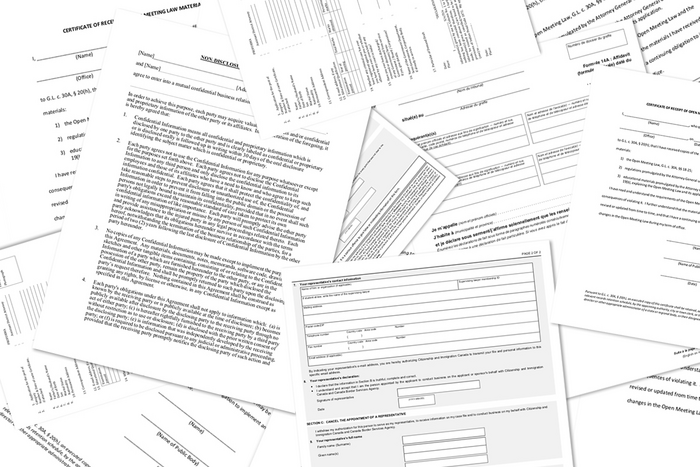In the competition between brand name pharmaceuticals and their generic counterparts, drug companies use patent gamesmanship to their advantage, one West Virginia University patent expert said.

Credit: WVU Graphic/Peter Habuda
In the competition between brand name pharmaceuticals and their generic counterparts, drug companies use patent gamesmanship to their advantage, one West Virginia University patent expert said.
Sean Tu’s primary area of study is patents and how they influence drug prices and innovation. The College of Law professor is researching the ways brand name firms manipulate the patent system to improperly maintain monopoly rights on pharmaceuticals, moves that potentially affect patient welfare.
So-called patent thickets are one such strategy, Tu said.
“When I teach FDA law, I tell my students there are a billion reasons a year to try to extend a monopoly,” Tu said. “Because these drugs are making tons of money, to protect their profits, drug companies are weaponizing patents. They create large ‘patent thickets,’ which are just multiple patents that cover the same product. These thickets are designed to delay or deter competitors from entering the market.”
Between 2000 and 2018 pharmaceutical companies made $8.6 trillion, earning significantly more than most industries, according to Tu. However, once generics enter the market, drug prices can drop by 90%, thereby lowering brand manufacturer profits.
One example of a company employing patent thickets is Amarin, which holds more than 100 patents on fish oil. Though the supplement has been around for many years, Tu said this patent thicket makes it harder for generics to enter the market. This is because generic firms will have to consider all of these patents before launching a generic version of the drug.
Tu’s findings on the Amarin case were published in the NYU Journal of Intellectual Property & Entertainment Law.
Another example is the world’s best-selling drug product, Humira, manufactured by AbbVie with revenues of almost $21 billion in 2021 alone. AbbVie also utilizes patent thickets to protect Humira, an immunosuppressant used to treat conditions like arthritis, plaque psoriasis and Crohn’s disease.
“That’s around $57 million a day,” Tu said. “How did they do it? They built up a patent thicket. They have applied for at least 247 patents on Humira and currently possess over 132 patents covering the drug.”
A second, sometimes connected, strategy is called evergreening, in which companies serially file patents to extend the life of the product. With Humira, approximately 90% of the patent filings were made after the drug was already on the market.
Evergreening and patent thickets are most prevalent in the U.S. market. In Europe, it is difficult to receive multiple patents on the same product, thereby facilitating the market entry of generics or closely related drugs known as “biosimilars.”
“In Europe, Humira biosimilars are already on the market and have been since 2018,” Tu said. “So, why can’t we do the same thing here? The U.S. won’t get a Humira biosimilar until 2023. A lot of it is because pharmaceutical firms play these patent games to delay entry or deter entry.”
The extensive nature of patent law makes research like Tu’s complicated.
“What these firms are doing is completely legal. However, these firms are taking advantage of the patent system and manipulating the system to do things it was never designed to do,” he said.
Tu works in collaboration with the Program on Regulation, Therapeutics and Law, part of the Division of Pharmacoepidemiology and Pharmacoeconomics, Department of Medicine, Brigham and Women’s Hospital and Harvard Medical School, where Tu is also a visiting professor.
As part of PORTAL, he recently published a paper in the New England Journal of Medicine examining asthma inhaler patents. The patents to the asthma drug albuterol expired in 1989. However, in addition to the drug, patients need the devices that deliver those drugs. After creating new patent thickets directed towards the inhaler delivery devices, drug companies were able to generate an additional $14 billion in revenues.
While Tu believes thickets and evergreening give companies an unfair advantage, he does believe in the patenting system in its truest form.
“I love the patent system,” he said. “I think it really works for getting innovation out there. It incentivizes the creation of new life-saving drugs, especially in the pharmaceutical field where the R&D costs can be very high. The patent system is there to level the playing field. That’s the good story. But it is currently being used not just to incentivize innovation, it is being manipulated to harm competition, which is the bad story — and not the original intent.”
Tu’s knowledge of patent law is extensive, and before coming to WVU, he practiced law at a firm that focused on the biotechnology and pharmaceutical industry.
“I wanted to link those two areas of law — patent law and FDA law,” he said. “I understand both the patent end and the science end of these pharmaceutical cases, because I prosecuted a lot of these patents when I was in private practice.”
Tu hopes his research will be helpful in West Virginia and nationally.
“Everything that I do right now is geared towards patient welfare,” he said. “My goal is to help create a health care system that is safe, effective, patient-centered, timely, efficient and equitable. I’d like to see new, innovative, breakthrough drugs that help patients at an affordable cost. I’d like to have a system that puts patients first.”
Journal
New England Journal of Medicine
DOI
10.1056/NEJMp2208613
Article Title
Product Hopping in the Drug Industry — Lessons from Albuterol
Article Publication Date
29-Sep-2022




